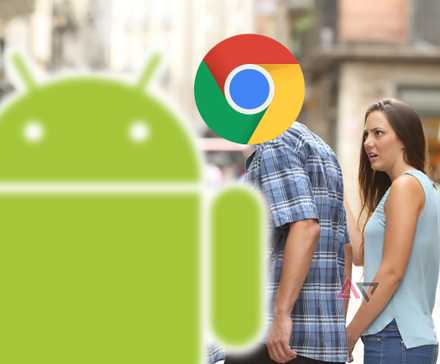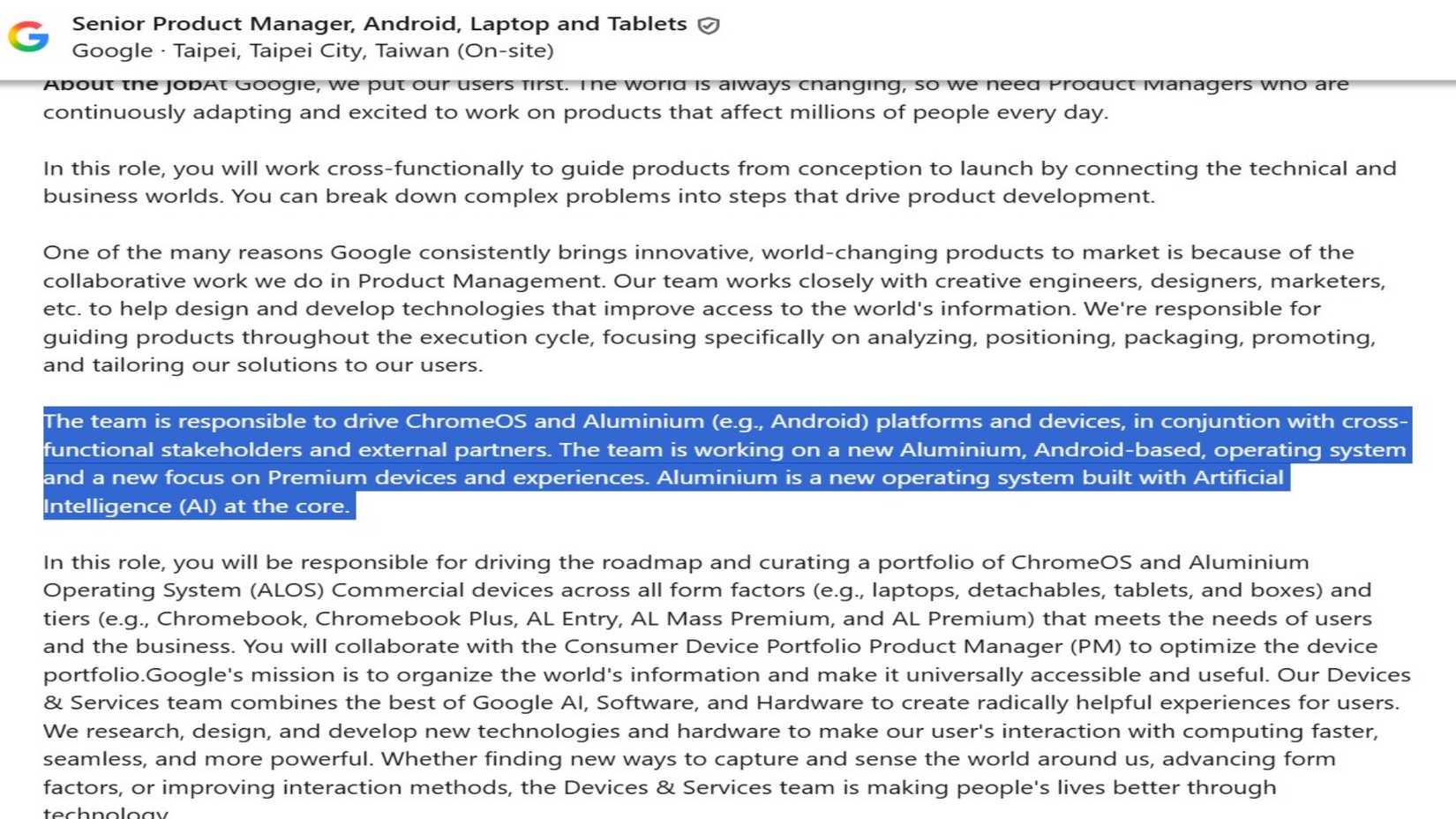ChromeOS is more than a decade old, but it has never posed a real threat to Macs and PCs in the high or mid-range category. It was not because there weren’t any premium Chromebooks, but because the underlying OS wasn’t on par with the powerful features users have on Windows and macOS.
This was one of the reasons the rumors of Google looking to replace ChromeOS with Android felt believable when they first surfaced in November last year. We can no longer treat it as merely a rumor because Google made it official at this year’s Snapdragon Summit. And now, the company has accidentally revealed more information about what users can expect from Android on the desktop.
Google’s Android desktop will focus on the AI wave everyone’s riding
The latest pieces of information about Android on desktop come from a job listing for a ‘Senior Product Manager, Android, Laptop and Tablets,’ first spotted by a tipster on Telegram named Frost Core (via Android Authority). The job listing first appeared a couple of months ago and is no longer accepting new applications, but the job description hints at Android for desktop internally being called “Aluminium.”
Interestingly, Google has chosen a British English spelling for the project’s codename. While it may or may not indicate something, the job posting explicitly mentions that “Aluminium is a new operating system built with Artificial Intelligence (AI) at the core.” Microsoft is also heading in this direction with Windows, but the software giant recently came under fierce criticism ever since it made its willingness public.
Google will want to avoid the negative press around AI when it launches a product with “Aluminium” OS, but for that, the company needs to get it right, especially since the operating system has a ‘new focus on Premium devices and experiences,’ unlike ChromeOS.
The job description doesn’t say anything about when Android will become available for desktop. But it does highlight the company’s long-term plan with the new “Aluminium” OS. As per the listing, Google will eventually replace ChromeOS with “Aluminium” OS, but it also intends to do so without causing any disruptions to the enterprise workflow. That’s good news for business users relying on ChromeOS.
Although Google hasn’t made any official announcement regarding the availability, its upcoming desktop operating system is unlikely to support all Chromebooks. If that’s indeed the case, those unsupported devices should continue to receive security updates until the version of ChromeOS reaches end of support.
When can we expect Android on the desktop?
Google hasn’t specified the exact release date, but at this year’s Snapdragon Summit, Sameer Samat, Google’s Head of the Android Ecosystem, confirmed that the new Android desktop operating system will be available in 2026.




